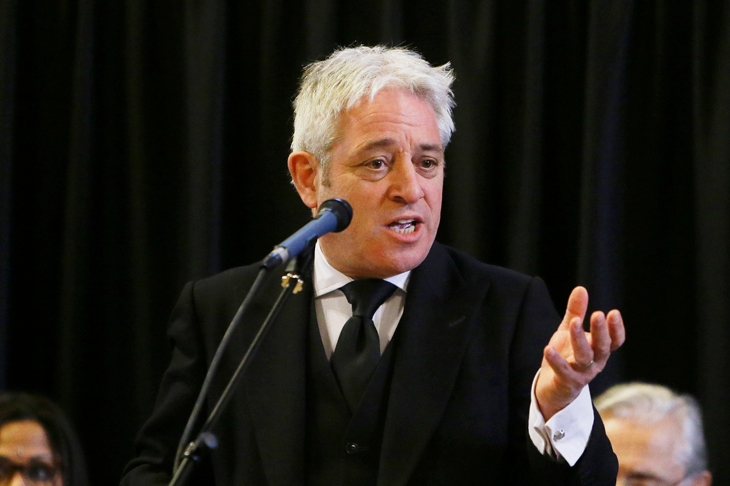The parliamentary press gallery has in the past given a pair of silver shoe buckles to the Speaker as a token of respect, since his shoes were all they could see of him from their perch above his chair. They won’t be giving buckles to John Bercow, for he has done away with most of his official attire. He wears a gown like a teacher in the Beano and sports a variety of what might be categorised as snazzy ties.
I was struck recently by hearing him refer to MPs collectively as ‘colleagues’. I can’t remember previous Speakers doing so. ‘I will come to other colleagues, if that is what colleagues wish,’ he said during a long series of points of order on 9 January after his ruling that let in one of Dominic Grieve’s amendments on Brexit procedure.
Colleague derives from the Latin col-, ‘together’, and legere, ‘to choose’. It has nothing to do with being in league, which comes from a different Latin verb, colligare, ‘to bind together’. Like other MPs, the Speaker was elected to Parliament. As he said last week: ‘I am a member of the legislature.’ They are co-chosen. MPs in the House call Mr Bercow Mr Speaker. He does still abide by convention in calling an individual the Honourable Gentleman or the Honourable Lady, or in referring to them by their constituencies. He spoke of Mr Grieve last week as ‘the Right Honourable and learned Member for Beaconsfield’.
Privy Counsellors are conventionally Right Honourable, and lawyers learned; Hansard adjusts errors. We used to hear military officers referred to as gallant. The Speaker referred to Kenneth Clarke as ‘the Father of the House’, which he is, having been sworn in just ahead of Dennis Skinner in 1970.
As for colleagues, it is true that Gladstone, in a pamphlet from 1851, referred to Lord Aberdeen being a colleague in 1844. They had both been ‘chosen’ (as legere suggests) to serve in the cabinet. Gladstone went one further than the unelected foreign secretary Aberdeen by himself continuing in cabinet, as colonial secretary, even after he was left without a parliamentary seat. That was during the Corn Law crisis, which bore so many parallels to today






Comments